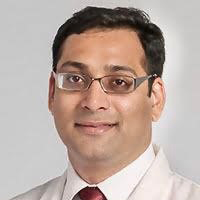My Experience Taking the Echocardiography Board Exams

It is said that it is better to have loved and lost than to have never loved at all. After taking my echocardiography (echo) board examination, I have a similar feeling – that it is better to have learnt and forgotten, than to have never learnt at all. Taking the echo board examination can be a daunting experience and having done so recently, I felt that sharing my experience would be helpful to others planning to take the exam.
I decided to take the echo boards after a firm recommendation by my senior fellows. The cost involved in taking the examination (including the cost of review materials) is one key factor to consider when deciding whether to take the board exams during fellowship. There is an early bird discount on the exam fee if you sign up early on the National Board of Echocardiography (NBE) website.
Preparation is the key to success. However, it was not until about two months prior to my exam date that I finally had time available to devote to the exam. In retrospect, I wish I had started a bit earlier, but that may not always be possible. It helps to plan early and schedule lighter rotations prior to the test. There are so many incredible resources available for board review, but the most important resource is to thoroughly study the relevant guidelines. Among the board review courses, Mayo Clinic Echocardiography board review course and American Society of Echocardiography (ASE) ASCeXAM/ReASCE Review Course are my favorites. Among self-assessments, ACC's EchoSAP and ASE Online Practice Exam Simulation are great options. There are some fantastic echo board review books by Allan Klein, MD, CM, FACC, and Vincent Sorrell, MD, FACC, which are loved among FITs. I also found the echo board preparation lecture series from the ACC Iowa chapter to be high yield. There are many more resources out there, but I personally used some of the ones I mentioned above based on feedbacks from my senior fellows and found them very reliable.
I thoroughly enjoyed going over the online board review courses. Not only were the lectures a fantastic way to prepare for the echo boards, but the content was extremely relevant and directly applicable to routine clinical practice. What amazed me, though, is how much more there was to learn about echocardiography, clinical cardiology, and hemodynamics even after two years of rigorous cardiology fellowship training. It was reassuring though that others preparing for the examination felt the same way. In our program, we had regular echo board review sessions which were a fantastic way to augment our prep. Over the years, our fellows have collected some high yield questions and we would go over these together, guided by our faculty.
Overall, even though I was a bit anxious about the exam itself, it was a fun experience to prepare for it. In the weeks before the exam, I also went over the NBE exam tutorial, which is the same tutorial that exam takers must complete on test-day. It was helpful to go over this beforehand, as it saved me time on test-day, which was added to the break time. The week prior to the echo boards can be nerve-racking, but I constantly reminded myself to keep my cool and made sure that I rested adequately. I also took breaks to do fun things and relax. I kept the last day before the examination light from a reading perspective and went to sleep on time.
The exam comprised of five question blocks, each with 40 questions. Fifty-four minutes were allocated to complete each block. There were 15 minutes available to go over the tutorial, and another 15 minutes of break time. The exam itself went surprisingly fast. The time allocated for the exam blocks is just about sufficient, and so it is important to keep track of time.
Since I joined fellowship, I have heard that this is one of the toughest exams in a cardiologist's career – and now I know why. It was a big relief to finally be done with the test, and I celebrated over a nice lunch with my co-fellows. Now, I just have a 10-week long wait to find out how I did, so I am keeping my fingers crossed.
I highly recommend other FITs take this examination, if possible. As someone pursuing a career in interventional cardiology, there is a good chance that I may not retain everything that I learnt for this exam, but I am still glad that I took it. Preparing for the exam substantially added to my echocardiography and cardiology knowledge, which undoubtedly is going to be incredibly useful for my future clinical practice, regardless of my chosen subspecialty.

This article was authored by Vikram Sharma, MD, a third-year cardiology fellow at the University of Iowa and co-chair of the Iowa ACC FIT Council.
This content was developed independently from the content developed for ACC.org. This content was not reviewed by the American College of Cardiology (ACC) for medical accuracy and the content is provided on an "as is" basis. Inclusion on ACC.org does not constitute a guarantee or endorsement by the ACC and ACC makes no warranty that the content is accurate, complete or error-free. The content is not a substitute for personalized medical advice and is not intended to be used as the sole basis for making individualized medical or health-related decisions. Statements or opinions expressed in this content reflect the views of the authors and do not reflect the official policy of ACC.

